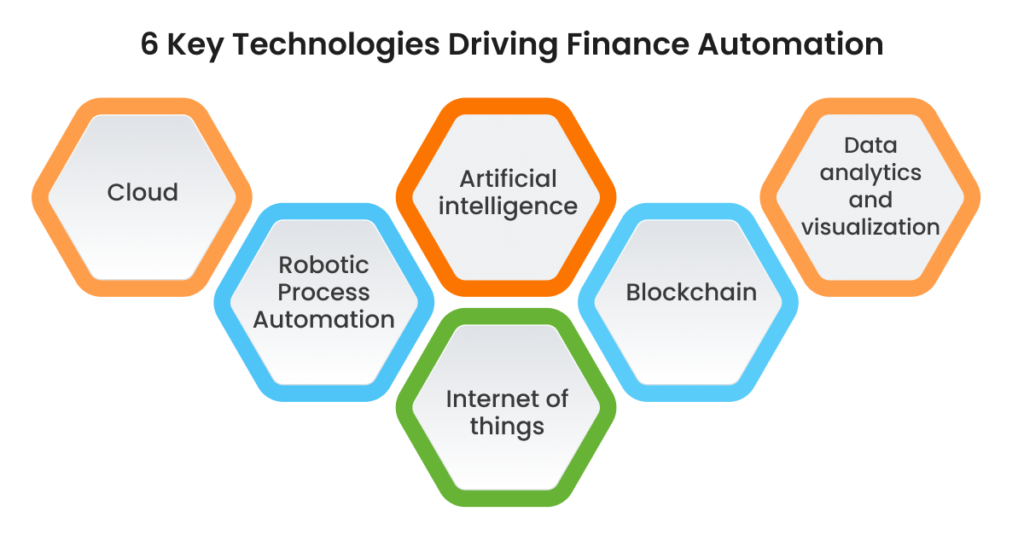Table of Contents
In today’s competitive market, automation has emerged as a key driver for enhancing business operations and fostering sustainable growth. Businesses are increasingly turning to automation technology to streamline workflows, reduce costs, improve accuracy, and scale operations efficiently. This post delves into the various aspects of business process automation and explores how it can transform operational efficiency, boost productivity, and accelerate growth. Below, we cover each core aspect, showing how businesses can leverage workflow automation tools, strategies, and advanced automation technology in business to create a future-ready enterprise.
Introduction to Business Automation
Business process automation refers to the use of technology to perform repetitive and manual tasks, freeing human resources for higher-value work. At its core, automation eliminates redundant processes, reduces human error, and enhances accuracy, which directly contributes to efficiency and cost savings. This initial step in adopting automation technology sets the foundation for any business looking to leverage growth effectively. By automating routine tasks such as payroll, scheduling, and customer service, businesses can improve productivity and streamline their operations for a competitive edge.

Key Drivers of Automation in Business
Understanding the drivers behind automation in business growth is essential for strategic adoption. Factors like increasing competition, the demand for real-time service, and the need to reduce operational costs are significant motivators. As businesses grow, so does the complexity of their operations, which can hinder agility and responsiveness. Automation tools help companies keep pace with market demands by enabling them to scale operations efficiently without compromising on service quality. For instance, automation technology in business allows companies to manage higher transaction volumes and customer inquiries seamlessly.

The Role of Automation in Operational Efficiency
Automation technology is instrumental in enhancing operational efficiency by simplifying complex processes. Workflow automation tools help standardize tasks, enforce compliance, and optimize resources. For example, automated workflows ensure that approvals, data entries, and notifications happen seamlessly, reducing bottlenecks. Businesses can reduce manual labor and increase accuracy, which improves the overall efficiency of the organization. As a result, employees can focus on more strategic responsibilities, furthering the business’s growth potential.

Automation’s Impact on Employee Productivity
One of the notable impacts of business process automation is the boost it provides to employee productivity. By automating repetitive and time-consuming tasks, employees are free to concentrate on strategic initiatives, creative projects, and customer-focused activities. This shift not only improves productivity but also enhances job satisfaction as employees engage in more fulfilling work. For instance, CRM tools equipped with automation technology allow sales teams to automate follow-ups, schedule appointments, and handle customer queries, enabling them to focus on closing deals and building relationships.

Automation in Customer Experience and Engagement
Automation plays a pivotal role in enhancing the customer experience, a critical factor in business growth. Automation technology in business—such as chatbots, AI-driven CRM tools, and personalized marketing—ensures that customer interactions are timely, accurate, and engaging. For example, chatbots can answer common questions and provide support 24/7, allowing businesses to respond to customer needs instantaneously. This level of engagement not only boosts customer satisfaction but also encourages loyalty, driving repeat business and contributing to long-term growth.

Driving Business Scalability with Automation
Automation offers businesses the ability to scale operations without a proportional increase in costs. Automation for small businesses, for instance, allows growing companies to handle more significant workloads and service demands with limited resources. Scalable automation solutions enable businesses to expand their offerings, serve a larger audience, and manage complex operations efficiently. For example, an e-commerce platform can use automated order processing, inventory management, and customer service to accommodate more sales without additional manual support, enabling it to grow faster.
Financial Gains and Cost Savings from Automation
One of the most compelling reasons businesses invest in automation technology is the cost savings it provides. By reducing labor-intensive tasks and minimizing human error, businesses can significantly reduce operational costs. Automation technology in business also enables efficient resource allocation, helping companies use their budgets more effectively. Additionally, automation tools that predict demand and adjust supply chains minimize wastage, improve ROI, and maximize profitability. The direct impact of these savings is often seen in improved profit margins and reinvestment in growth initiatives.
Enhancing Decision-Making Through Data Automation
Data-driven decision-making has become essential in today’s digital business landscape. Automation can assist by collecting, organizing, and analyzing data, providing actionable insights. Business automation strategies involving data analytics tools enable real-time decision-making and trend forecasting. For instance, sales automation tools collect customer purchase history, preferences, and behavior, allowing companies to make data-backed marketing and product decisions. With accurate data insights, businesses are empowered to make informed decisions that support growth and adaptation to market changes.
Automation’s Role in Compliance and Risk Management
Automation also aids in compliance and risk management, ensuring businesses adhere to regulatory requirements and reduce potential liabilities. Automated systems can track, record, and report necessary compliance data, minimizing the chance of errors that could result in penalties. Moreover, automation technology in business strengthens security protocols, ensuring data privacy and protecting against cyber threats. Businesses, particularly in heavily regulated sectors like finance and healthcare, benefit from automation that enforces data governance and compliance processes.
Future Trends in Business Automation
The future of automation in business growth lies in advanced technologies like AI, machine learning, and robotic process automation (RPA). These innovations promise to take automation to new levels, enabling businesses to automate more complex tasks, make predictive decisions, and optimize every aspect of their operations. For example, machine learning algorithms can predict customer preferences, optimize supply chains, and automate intricate tasks like fraud detection. As these technologies evolve, they are set to become indispensable tools for businesses aiming to stay competitive and agile.
Challenges and Considerations in Implementing Automation
While this technology offers many benefits, businesses should consider potential challenges. These include upfront costs, data security concerns, and the impact on workforce dynamics. Moreover, selecting the right workflow automation tools and aligning them with business goals requires careful planning. Companies must address these challenges by adopting automation solutions that are scalable, secure, and adaptable to changing business needs. Regular employee training and a gradual shift toward automation can also ease the transition.
Conclusion: Strategic Automation for Long-Term Growth
In conclusion, business process automation is not just a technological upgrade; it’s a strategic move toward sustainable growth. Through automation, companies can achieve higher operational efficiency, improve productivity, reduce costs, and enhance customer satisfaction. By adopting a balanced and strategic approach, businesses can unlock the full potential of this technology and create a growth-ready enterprise. As automating continues to evolve, embracing these technologies will be crucial for companies looking to thrive in a dynamic and competitive market.
Automation is undeniably transforming the business landscape, empowering organizations of all sizes to achieve efficiency and growth. As companies continue to integrate automation into their processes, they position themselves for long-term success in an increasingly digital economy.





